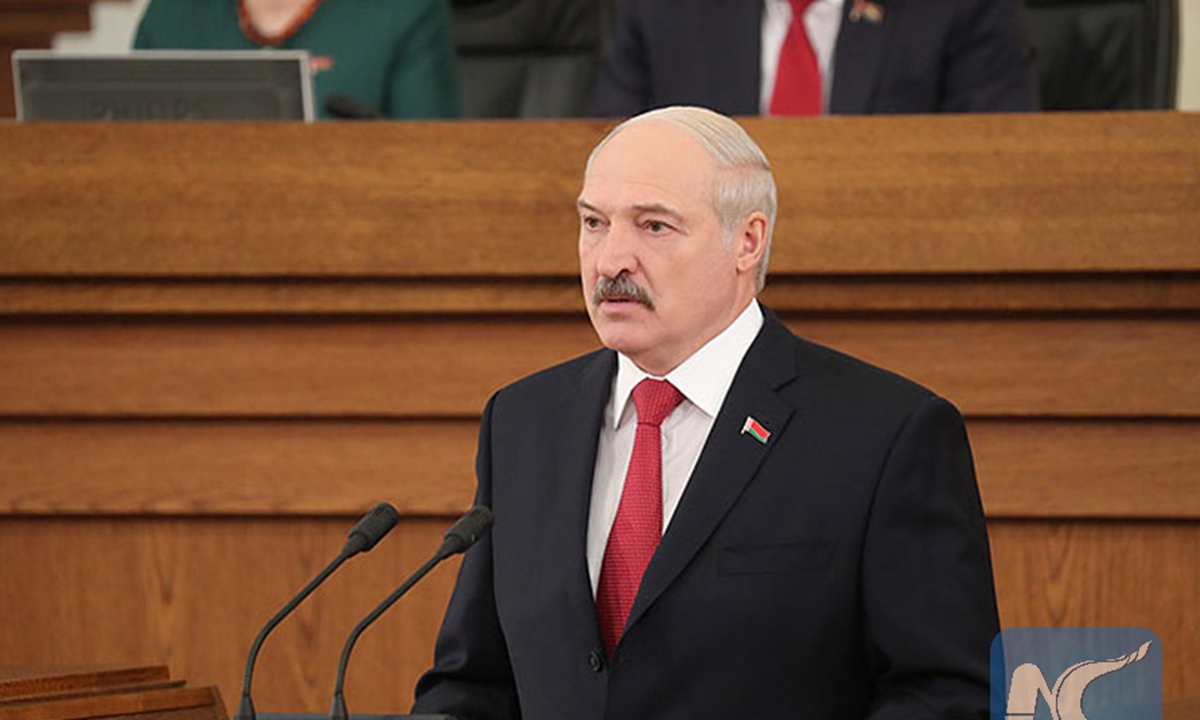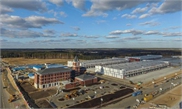
Belarusian President Alexander Lukashenko Photo: Xinhua
The chaos in Belarus has lasted for nearly two weeks. This has been unexpected for Belarusian President Alexander Lukashenko. An election that was supposed to have no suspense turned into a predicament that cannot be solved in a short time.This reminds people of the Ukraine crisis in 2014. Will Belarus and Ukraine face the same fate? Will Belarus become the second Ukraine? The answer might be no.
First, it would be difficult for Belarus to become a second Ukraine. Although Belarus is a buffer between the West and Russia, unlike Ukraine, there is no division in terms of language and cultural identity in Belarus. At the same time, there is no strong anti-Russian sentiment within Belarus, and most people support maintaining close relations with Russia.
Moreover, Russia is Belarus' largest exporter and importer of goods and the second largest source of investment. Keeping up close ties with Russia is an inevitable option for the country to promote economic development and safeguard national interests and security.
Second, it might seem that Belarus is in an uncertain state with more protests and strikes worsening the situation. However, the political fundamentals of Belarus have not changed. In Belarus, Lukashenko still firmly controls the powerful departments. The bureaucracy created by him is still relatively stable and operating normally. There is no sign of disintegration within the ruling group.
By contrast, the opposition groups are still immature. They have formed an alliance, electing Sviatlana Tsikhanouskaya as the leader. They have set up a power transfer committee, and put forward the requirements such as having dialogues with the government, national reforms and the step-down of Lukashenko. However, they still lack the experience of political struggle - they have not put forward a complete, clear and feasible campaign programs or plans.
Third, relations between Russia, the US, and Europe have not changed much. Countries are busy with domestic affairs and lack interest in the issue of Belarus.
As an ally of Belarus, Russia recognized the election results from the very beginning. It said it would provide assistance based on the treaty on creating the Union State and in the framework of the Collective Security Treaty Organization if necessary.
Western countries denounced election results of Belarus as "fraudulent" and demanded a new vote. Some have threatened to impose sanctions on Belarus, but no specific measures with teeth have taken a bite so far.
Washington, Berlin, Paris, Brussels and other Western capitals have not shown a strong willingness to intervene in matters in Minsk as they did during the Ukraine crisis in 2014. Only Poland, Lithuania and other European countries that are hostile to Russia have been willing to escalate the current situation. They hope to spread anti-government sentiments from Belarus to Russia, dragging Russia into the predicament of anti-government demonstration.
In general, the conflicts between the elite and the ordinary people in Belarus are sharp. They are too difficult to be solved quickly. But people in Belarus have seen how Ukraine turned into a battleground between Russia and the West. They know how the geopolitical rivalries have affected the lives of people. They still can prevent the situation in their country from spiraling out of control. They can avoid becoming the next Ukraine.
The author is an associate research fellow of the Institute of Russian, Eastern European & Central Asian Studies at the Chinese Academy of Social Sciences. opinion@globaltimes.com.cn

